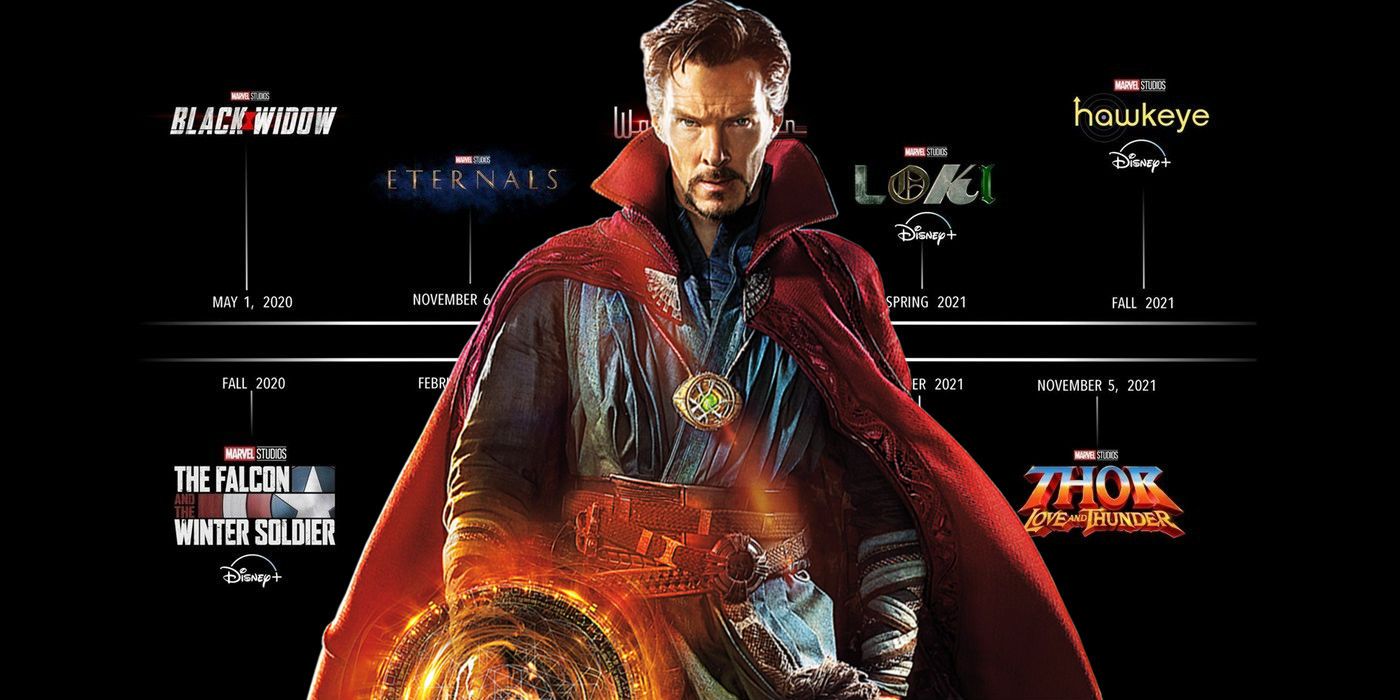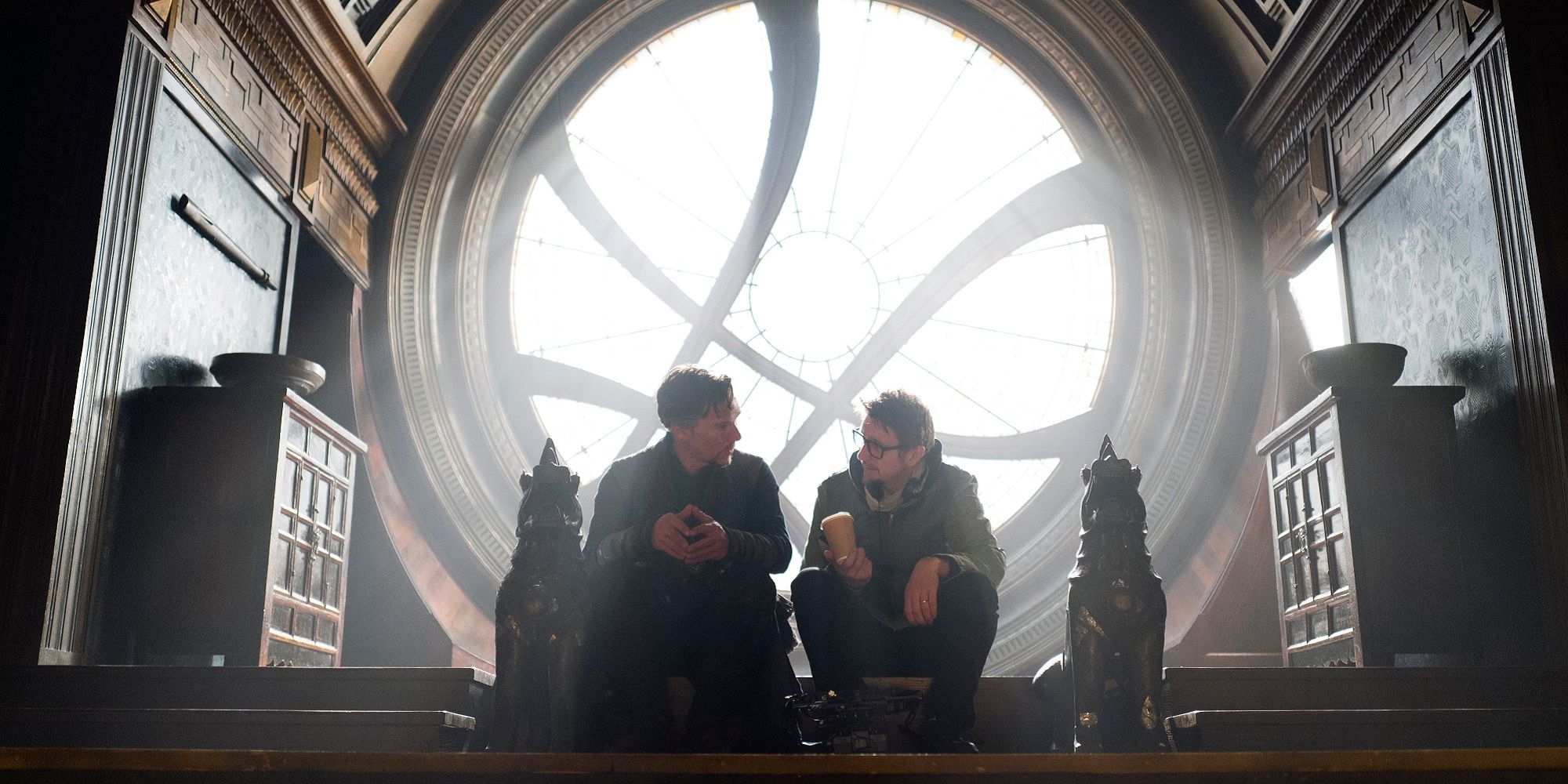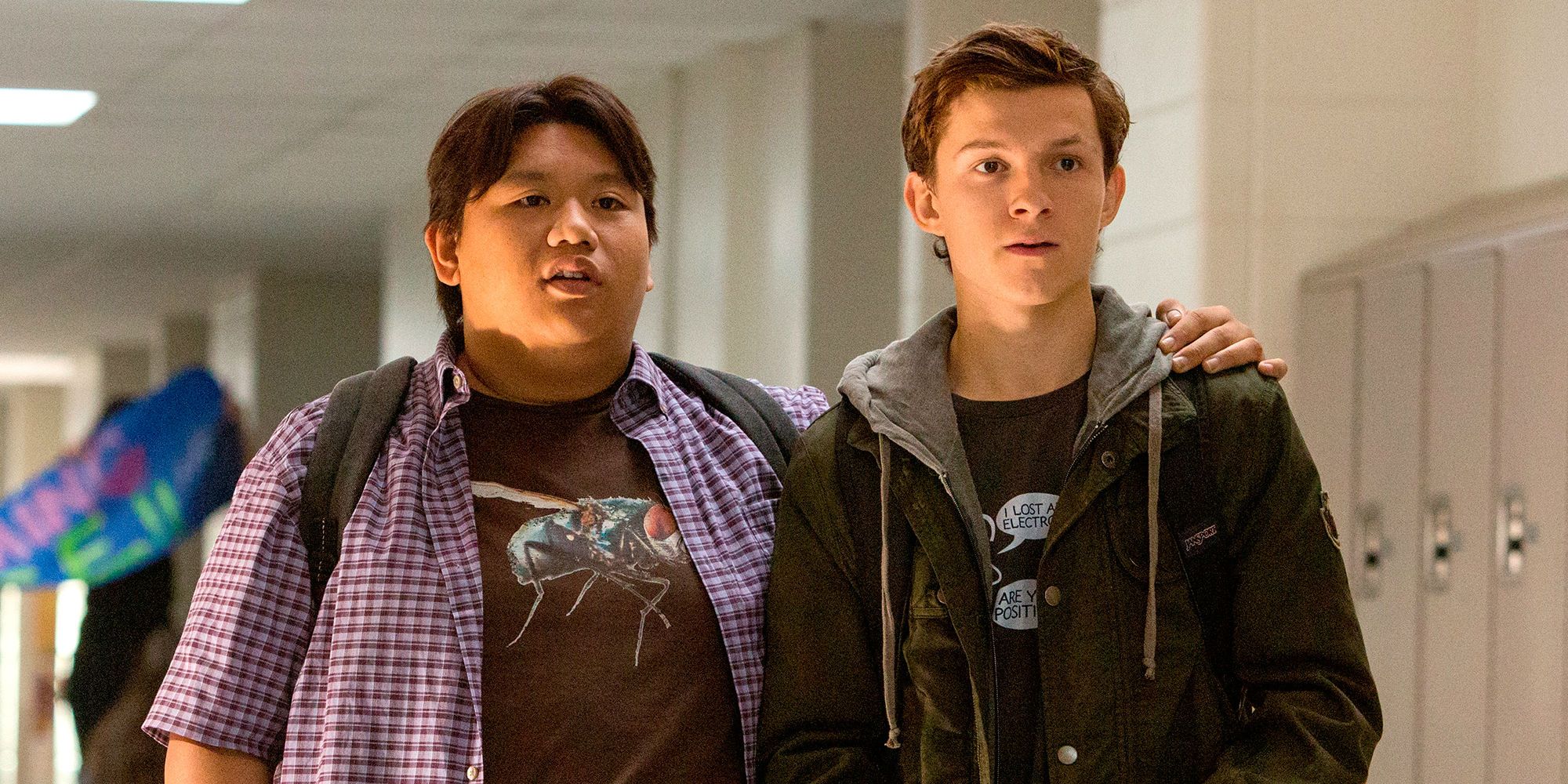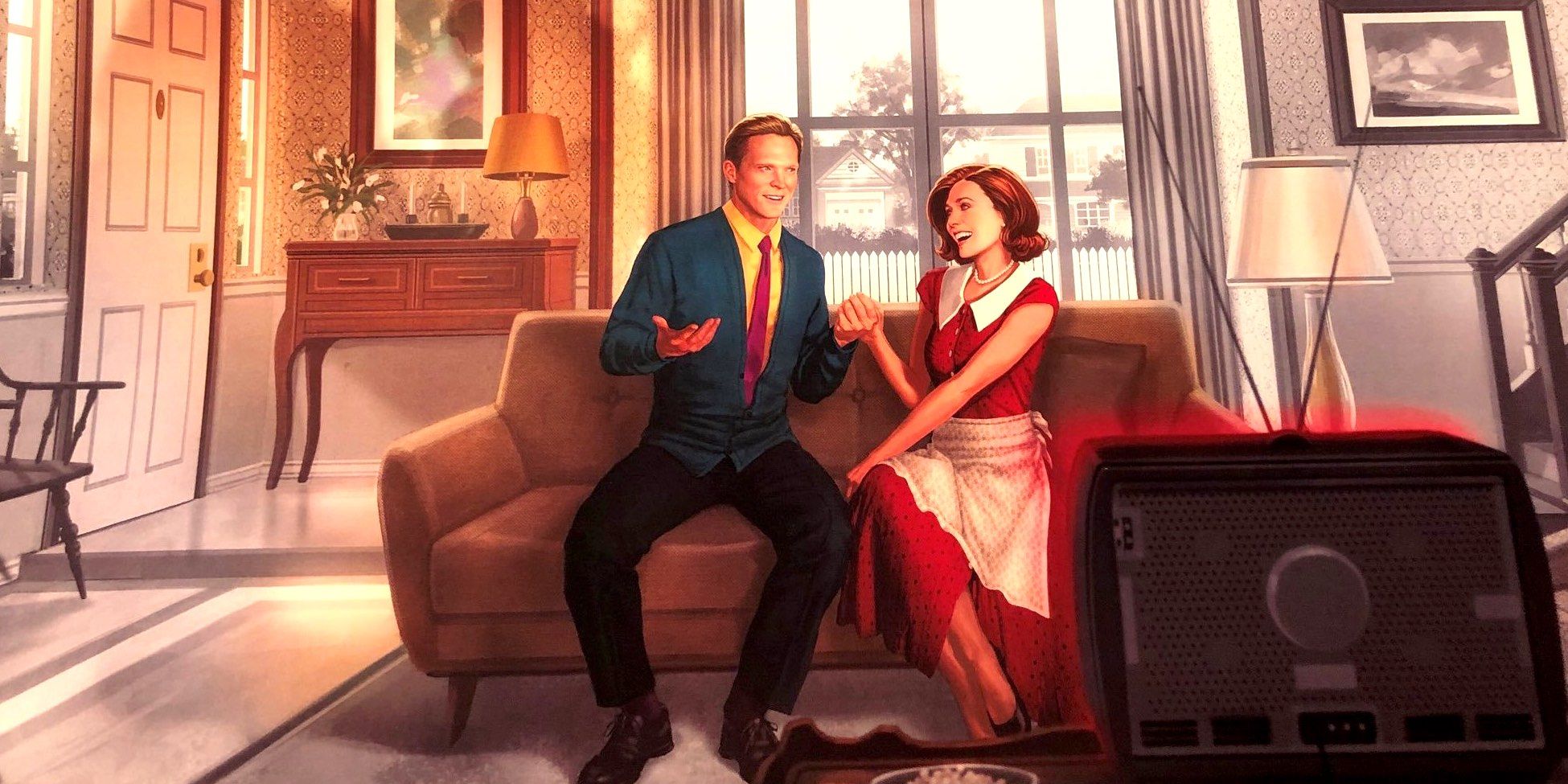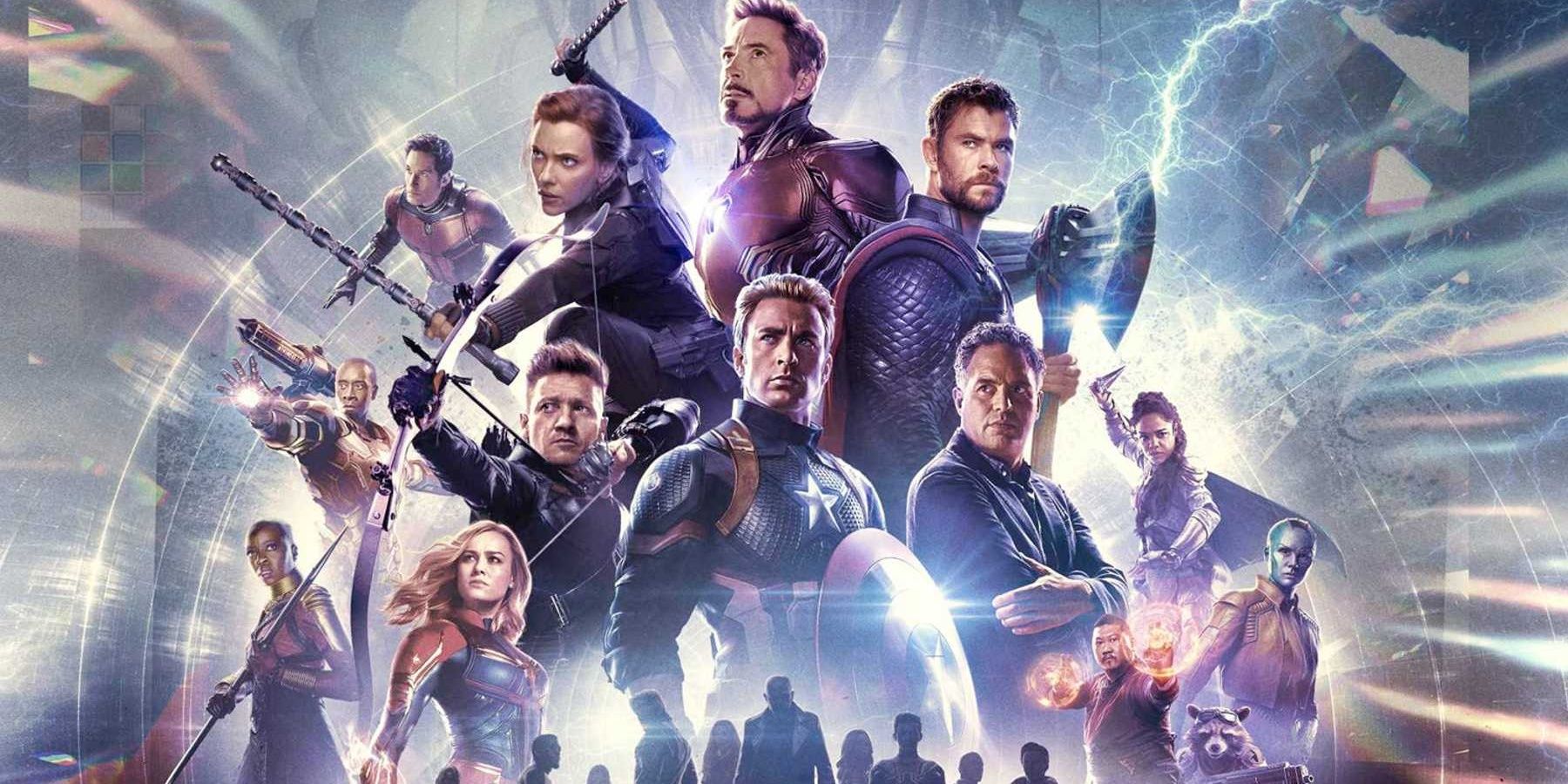After Scott Derrickson left his role as director of Doctor Strange In The Multiverse of Madness, what does the future hold for Marvel's Phase 4? Since its inception in 2008, the Marvel Cinematic Universe has grown to become a movie success story of previously unfathomable proportions, culminating in Avengers: Endgame becoming the highest-grossing film of all time. Part of the franchise's enduring popularity rests in its ability to take characters previously known only to comic book fans and make them instantly recognizable to a mainstream audience, and Dr. Stephen Strange was one such superhero.
With Benedict Cumberbatch in the title role and Sinister's Scott Derrickson in the director's chair, Doctor Strange proved to be another big hit for the Marvel machine, and the Sorcerer Supreme soon found himself a key member of The Avengers in the fight against Thanos. A second solo outing looked inevitable, and Doctor Strange 2 was eventually confirmed as part of the MCU's Phase 4, with the primary cast and Derrickson all returning.
Cracks first started to appear when Derrickson suggested his second Doctor Strange offering would be a horror-tinged affair, but these claims were quickly played down by Marvel head honcho, Kevin Feige. Fast-forward to 2020, and Derrickson has exited Doctor Strange 2 citing "creative differences," with those early differences in opinion clearly becoming insurmountable. With connectivity at the heart of the MCU, this unforeseen development could have ramifications on other Phase 4 entries, and perhaps even the MCU franchise as a whole.
How Derrickson's Departure Will Affect Doctor Strange 2
Naturally, it's Marvel's director-less Doctor Strange sequel that will suffer most as a result of Scott Derrickson's departure. There has evidently been a struggle between director and studio over the tone and direction of Doctor Strange 2, with Derrickson hoping for something edgier and horror-tinged, and Marvel/Disney wanting to maintain the status quo. Filming on the project remains slated for May 2020, with Marvel hoping to find a replacement before then, however, the behind-the-scenes disagreements suggest the story and creative decisions may not be nailed down quite yet. This means that Marvel not only have to hire a replacement for Derrickson, but also finalize their plan for Doctor Strange 2 with a director that will no doubt have their own opinions and ideas, all in time to start shooting come May. Given Marvel's slick operation, that time frame is certainly possible, but the added work could necessitate a delay if things don't proceed as quickly as Marvel are hoping.
Derrickson's departure is also a strong signal of Marvel's intentions for Doctor Strange 2. The sequel will not boast the level of horror influence fans were perhaps hoping for, likely remaining closer in tone and style to the original Doctor Strange film instead. This news will no doubt mark a disappointing turn of events for the many fans who were excited about the MCU embracing Strange's darker comic stories. While 2016's Doctor Strange was very successful, it perhaps wasn't one of the MCU's top-tier efforts, and a more unique, scarier flavoring could've driven Cumberbatch's character to the next level.
Instead of building on Doctor Strange's foundations, however, the directorial upheaval increases the risk of Doctor Strange 2 not holding up against its predecessor. One of the first movie's major selling points were the trippy and unique visuals, helping Doctor Strange stand out both inside the MCU and within the superhero genre as a whole. As director, Derrickson played a huge part in this. A new pair of hands on the wheel may struggle to replicate the same balance of ambitious, mind-bending action sequences and bonkers multiverse nonsense in a way that's consistent with the world Derrickson brought to life. Also concerning is the rush Marvel will now be under to put Doctor Strange 2 out on time, which could mean less time to fine-tune the CGI and effects. Putting out an unfinished film would be very unlike Marvel but, as seen with Cats and Justice League, it is known to happen.
How Marvel's Phase 4 Slate Could Shift
If Marvel ultimately aren't able to adhere to their current release timeline, how might the schedule for Phase 4 change? Doctor Strange 2 is set for release in May 2021 as things stand, with 3 other Marvel movies also releasing that year (Shang-Chi & The Legend of the Ten Rings, Spider-Man: Homecoming 3 and Thor: Love and Thunder). Consequently, there isn't an awful lot of room for maneuver if Doctor Strange 2 needs to be pushed back, at least not without clashing against other releases. Complicating matters further, July's Spider-Man movie is a joint production with Sony, meaning that particular date may not be straightforward to shift around.
If delaying Doctor Strange 2 became absolutely necessary, there is a potential gap between Spider-Man in July and Thor: Love & Thunder in November which would cause minimal disruption to the rest of Phase 4. The drawback of a cinematic universe, of course, is that this would depend entirely on whether the next Spider-Man movie follows on from Doctor Strange 2 in any way. If Disney still wanted to keep their Phase 4 slate roughly in the same order, they might consider a more far-reaching shuffle. Bring Shang-Chi forward by a few weeks to help manufacture a gap, push Spider-Man nearer to Autumn if Sony are willing to play ball, and Doctor Strange 2 can slot in roughly where Spider-Man was. Moving Peter Parker out of his usual summer slot is hardly ideal, but then neither is having a director quit when a release date has been confirmed.
Could Doctor Strange 2's Director Change Impact WandaVision and Loki?
The perils of a cinematic universe mean that Doctor Strange 2's troubles don't just impact other movies, but also TV shows, since the MCU is set to expand onto Disney+ in 2020 and beyond. Both WandaVision and Loki are set to premiere before Doctor Strange 2 and will then connect to Cumberbatch's second solo outing. WandaVision in particular is said to build towards the big screen sequel, which also stars Elizabeth Olsen's Scarlet Witch. Meanwhile, Loki was intended to premiere in early 2021 and bleed directly into Doctor Strange 2 in time for May. It's now clear why Marvel are so keen to ensure Derrickson's departure doesn't result in any delays.
Realistically, the change in director on Doctor Strange 2 could absolutely have a knock-on affect for WandaVision and Loki on Disney+, both in terms of content and release. Filming for the Scarlet Witch and Vision project began back in November, while work on the God of Mischief's solo series is expected to start imminently, but any story alterations made to Doctor Strange 2 (either by Marvel or Derrickson's replacement) will need to be reflected in both TV shows, depending on how interconnected all three are. Doctor Strange 2 moving firmly away from the horror genre also implies that the MCU's Disney+ content won't rock the boat in the same way The Mandalorian did for Star Wars. When WandaVision and Loki were revealed as Doctor Strange tie-ins, the titular characters felt like they might fit neatly alongside the sequel's supposed horror stylings. That no longer appears to be the case.
A Less Diverse MCU Phase 4
Marvel's Phase 4 already finds itself in a tricky position, coming off the back of the epic, record-breaking Infinity saga. Certainly, Phase 4 feels like a transitional slate, with several releases that either set up largely unknown characters (Eternals, Shang-Chi) or that fans generally aren't too excited for (Black Widow). There's also no big, crossover team-up movie or an overarching storyline to tie everything together at present, both of which were instrumental in establishing the MCU's dominance. Add to that the embarrassing furor around almost losing Spider-Man, and Phase 4 has got off to a very shaky start, and losing Scott Derrickson after his sterling job on the original Doctor Strange represents another considerable blow.
With Phase 4 looking less enticing than previous slates, some cinematic diversity could've helped add spice to Marvel's next two years - a little espionage from Black Widow, horror from Doctor Strange 2 and comedy from Thor: Love & Thunder. Unfortunately, the creative differences that caused a talented director to step away risk stifling diverse filmmaking in the MCU. The standard Marvel formula has proven highly successful but will eventually wear thin, especially with rivals DC becoming more experimental in their superhero releases and having the more exciting release schedule lined up. Phase 4 needed something to make it pop, and while that briefly looked to be an expansion of the MCU formula's parameters, those boundaries have now been snapped right back, indicating to fans and filmmakers alike that they're getting more of the same.
In many ways, this is nothing new. Edgar Wright quit working on Ant-Man in 2014 after feeling similar constraints from Marvel and their MCU designs, but at least that drama played out on Scott Lang's debut movie. With Doctor Strange, fans already have a handle on Derrickson's vision of the character, and his replacement will have to work inside of that. Marvel's backing away from horror elements in Doctor Strange 2 also doesn't bode well beyond Phase 4, with Deadpool and Blade movies on the horizon. Doctor Strange In The Multiverse of Madness might've benefited from some horror touches, but it isn't a necessary part of Cumberbatch's character. It'll be interesting to see how Marvel cope when faced with movies where fans expect a less family-friendly approach.

